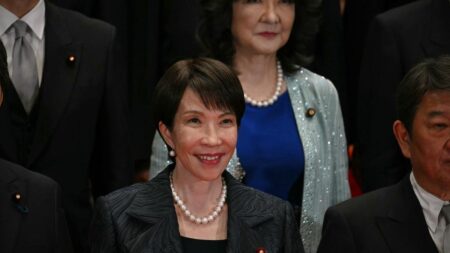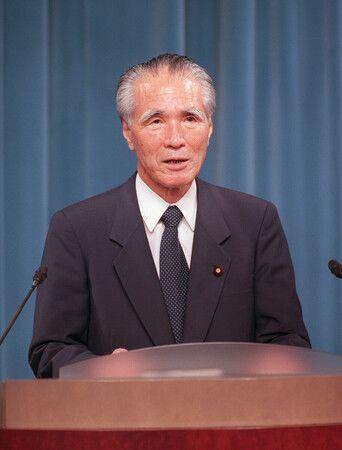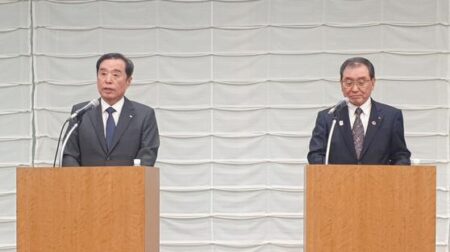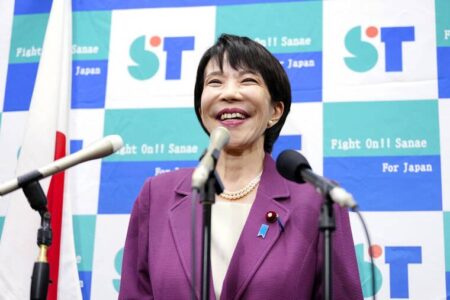The man who confessed to assassinating former Japanese Prime Minister Shinzo Abe has been sentenced to life in prison. The court emphasized that the crime was meticulously planned, marking a defining moment in Japan’s relentless quest for justice following this devastating tragedy
Browsing: Japanese politics
Japan’s Prime Minister Takaichi has announced a snap election set for February 8, putting the spotlight on key issues such as ramping up government spending, rolling out tax cuts, and bolstering national defense, Reuters reports
Following a pivotal Pentagon meeting with Fox News host Pete Hegseth, former Prime Minister Junichiro Koizumi boldly declared the U.S.-Japan alliance “unshakable,” emphasizing the enduring strength and unwavering bond that define this vital security partnership
Japan has enthusiastically embraced its new prime minister, inspired by his hands-on leadership and daring commitments to rejuvenate the economy. His fresh vision ignites a wave of optimism, shattering years of political fatigue and economic challenges, and rekindling the public’s trust
Reuters Breakingviews warns that Japan’s snap election could ramp up fiscal pressures and escalate tensions with China. Market experts spotlight the risk of soaring government spending alongside mounting geopolitical uncertainty across the region
Japanese Premier Takaichi is reportedly preparing to call snap elections as political tides shift and public opinion evolves. Sources say this bold move aims to solidify her hold on power ahead of critical legislative battles
Japan’s Prime Minister Takaichi is reportedly preparing to call a snap election this February, aiming to solidify his hold on power as he confronts pressing economic issues and escalating regional security threats, sources reveal. A final decision is expected soon
Japan’s Takaichi is reportedly contemplating a snap election for mid-February, aiming to strengthen her party’s position ahead of critical legislative battles, sources reveal. The decision remains under careful consideration
Japan’s new leader is turning a recent clash with China into a dynamic political weapon, igniting national unity and boldly reshaping Tokyo’s role in regional diplomacy. This signals a striking new chapter in Japan’s strategic approach
Former President Donald Trump praised Japan as a crucial ally and passionately threw his full support behind candidate Sanae Takaichi, vowing to deliver “anything you want” to power up her campaign, Yahoo Finance reports
Sanae Takaichi has made history as Japan’s first female prime minister. The ultraconservative lawmaker was chosen by her fellow parliamentarians, marking a groundbreaking moment in the nation’s political journey
Get married”: The Japan Times reveals the intense pressure Japanese female politicians face to conform to traditional family roles, shining a light on the persistent gender biases that continue to shape political careers throughout Japan
New Japan Prime Minister is gearing up to dramatically increase the country’s defense budget, aiming to strengthen security amid escalating regional tensions, reports Barron’s. This bold decision signals a major turning point in Tokyo’s military strategy
Japan stands at the brink of a historic milestone as a woman prepares to take the helm of the nation. Experts are abuzz with excitement and debate, wondering if this groundbreaking moment will ignite genuine, lasting progress for gender equality across the country
Japan’s ruling Liberal Democratic Party (LDP) and the Japan Innovation Party (JIP) have united to form a dynamic new coalition, Kyodo News reports. This formidable partnership promises to strengthen governance as they prepare to take on the upcoming elections with renewed vigor
Socialist Prime Minister Murayama delivered a moving and sincere apology for Japan’s wartime actions, openly acknowledging the profound suffering caused during World War II. This landmark statement marks a vital step toward confronting history and fostering healing from past wounds
Japan is now facing a wave of political uncertainty following the unexpected collapse of its ruling coalition. Major parties are scrambling to resolve leadership struggles and navigate potential policy shifts as looming elections draw near, raising serious questions about the future stability of the nation’s government
Japanese business groups are raising urgent concerns about a potential split within the ruling coalition, warning that such a divide could derail policymaking and jeopardize economic stability. Industry leaders are urging prompt efforts to bridge differences and safeguard investor confidence
Japan’s first female leader of a governing party, celebrated for her ultra-conservative views, has stormed onto the political stage as a dynamic force in a realm long dominated by men. Her rise signals an exciting and transformative chapter in Japan’s ever-changing political story
Japan markets surged with volatility following the stunning victory of Abe-disciple Sanae Takaichi, reigniting investor concerns over policy stability and the nation’s economic outlook. This unexpected win sent powerful shockwaves through market confidence amid a backdrop of ongoing political shifts




















